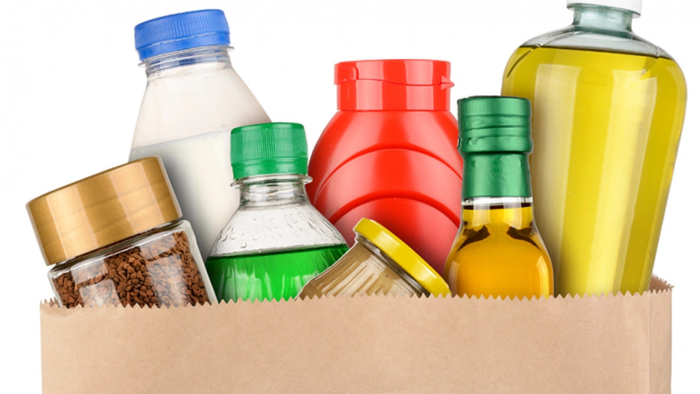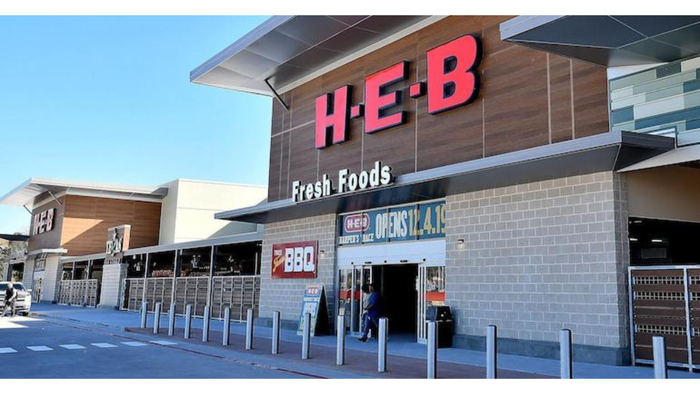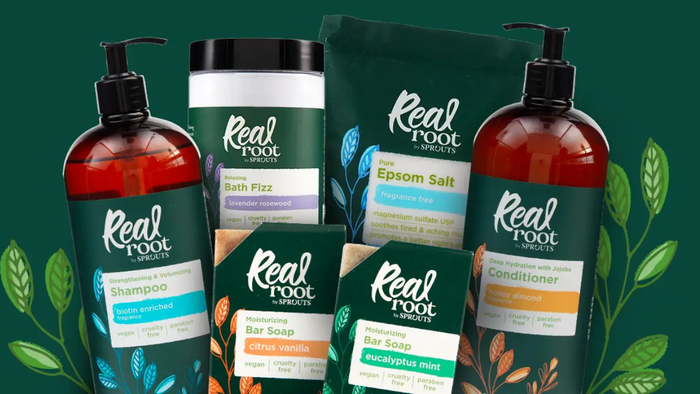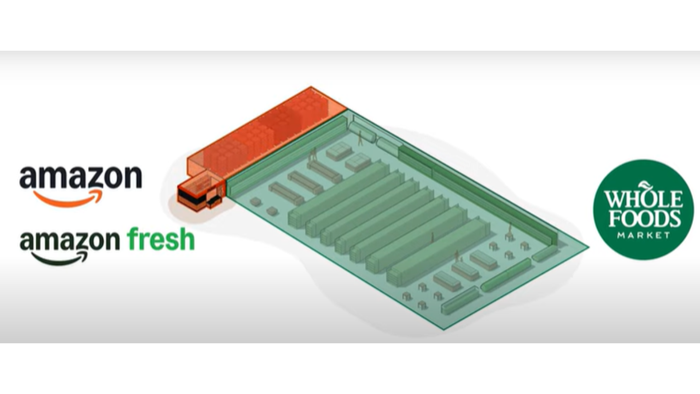Reformulating function
January 1, 2018
Unique ingredients and health-driven benefits of functional beverages are serving as a growth engine for an otherwise mature beverage category. By Carol Radice Lucille Ball may have poked fun at the concept of drinking your way to good health with her now-famous “Vitameatavegamin” skit, but today’s functional beverages are anything but a laughing matter. Often viewed as a new twist on an old classic, naturally enhanced waters, juices and teas are capturing consumer interest. “Functional drinks are quickly gaining popularity in mainstream channels,” says Seth Goldman, president of Honest Tea, based in Bethesda, Md. “This isn’t a niche category anymore and shouldn’t be viewed as one. Therefore, one of the mistakes retailers can make is not merchandising functional beverages near conventional beverages.” This fast moving category is also seeing a record number of new product introductions, which are quickly edging out some longstanding best sellers. Consequently interest in sports and energy drinks, which were once the undisputed leaders of the category, is beginning to wane in favor of more exotic options such as coconut water, superfruits, aloe and antioxidant-packed teas. As a result industry observers say today’s functional beverage scene looks nothing like it did a year or two ago. “The category has shifted from the energy craze to a more evenly distributed array of products that aim to refresh and renew,” says Charley Snell, founder of Winnetka, Ill.-based Tenaya, distributor of the MADE line of organic drinks. Later this year a low-calorie version of MADE will be available. “It still is organic and has real green tea and fruit juice, but only 10 calories,” says Snell. Despite the somewhat higher cost, interest in organic beverages is running high. According to Mark Ozimek, brand manager for Cincinnati-based Bossa Nova Superfruit Co., consumers are attracted to the healthfulness and minimum amount of ingredients that many natural and organic beverages offer. That was not always the case as early entrants to the category, particularly among superfruit drinks, varied greatly on quality and taste causing some consumers to shy away. Ozimek says the challenge for Bossa Nova was to create consistently great tasting drinks. “Consumers are looking for delicious tasting drinks that happen to be healthy—not the other way around,” he says. Bossa Nova produces its drinks in single-serve sizes, something Ozimek says was done in part to incite trial and build loyalty and portability. “Our 10-ounce bottles have been the perfect size to introduce our products to the mainstream market,” he says, adding that if the demand proves to be there the company would consider introducing a larger 32-ounce version. In April Bossa Nova introduced Organic Açai Pomegranate to its line of superfruit juice beverages. “With Bossa Nova’s new Organic Açai Pomegranate, we are offering an exotically delicious way to reap the amazing antioxidant benefits of açai and pomegranate,” says Ozimek. He notes that emerging research about the potential health benefits of pomegranates has helped fuel the fruit’s growing popularity. “To ensure great taste and optimal nutrition, Bossa Nova uses açai berries that are picked by hand at the peak of ripeness. The organic berries are harvested from sustainably grown açai palm trees in the Brazilian Amazon rainforest.” As more studies are published supporting the role antioxidants play, Ozimek sees functional beverage sales remaining strong. While the natural and functional beverage category has enjoyed much growth in recent years, some observers say it is now experiencing “functional fatigue.” According to Eric Skae, founder and CEO of New Leaf Brands, based in Old Tappan, N.J., “The variety of health benefits some companies are claiming their drinks offer is confusing consumers. As a result many consumers are now turning to products with simple and proven ingredient profiles.” Skae believes that is why sales of New Leaf’s bottled teas and lemonades are up significantly this year. Specifically, New Leaf’s glass bottle, all-natural lemonade has quickly grown and now accounts for 40% of the company’s overall business. “This is a simple, refreshing drink that reminds most people of their childhood and the lemonade stands they had as a kid,” says Skae. Looking to build on that success, New Leaf added two light lemonade drinks this past May. Despite its name, Honest Tea, which was recently purchased by Coca-Cola, is looking to become a player in the lemonade segment as well. The company, whose mission, according to Goldman, is to make great-tasting, truly healthy organic beverages, sweetened with less sugar and fewer calories than most bottled beverages, recently launched a caffeine-free, zero-calorie Classic Lemonade organically sweetened with stevia. “Historically lemonade has been thought of as a summer drink, but today lemonade sells well year round,” says Goldman. “People are attracted to a ‘simpler is better’ approach when it comes to drinks today.” In addition to the new lemonade offerings, Honest Tea has expanded to include Honest Ade organic thirst quenchers, Honest Kids drink pouches and Honest CocoaNova, a line of low-calorie brewed cocoa. Goldman says CocoaNova is a brewed cacao infusion made with USDA Certified Organic and Fair Trade Certified cacao beans, the main ingredient in chocolate. Honest CocoaNova is available in three varieties, Mint Cacao, Mocha Cacao and Cherry Cacao. “This product is already turning a lot of heads, in part because it is so different from other functional beverages,” says Goldman. “I don’t think we could have introduced a drink like this five years ago, but today’s consumers are highly aware of the health benefits cocoa offers.” Going green Not long ago, few people were familiar with green tea. Today it is among the top drivers in functional beverages. Rona Tison, senior vice president of corporate relations for New York-based ITO EN, maker of the ready-to-drink Teas’ Tea brand, calls the interest “explosive.” She says that in a short period, consumers have gone from being in the dark to developing a stronger understanding of green tea and its benefits. “There has been such an evolution in the category,” says Tison. “In their search for purer drinks, people are becoming much more knowledgeable about the various types of green tea and its health benefits.” However Tison says one thing consumers—and retailers—may not be aware of is that not all green teas are created equally. She points out that not only are there many types of green tea, as a rule it is a very fragile tea leaf. Therefore, to bottle a tea and capture its optimum taste takes the right combination of technology and experience. “We use an airtight technology similar to vacuum packing, which helps us capture the tea at its best taste profile,” says Tison. “One of the more common criticisms of green tea is that it tastes bitter, but what most people don’t know is that when brewed correctly, using a lower temperature, that’s not the case at all.” ITO EN’s top seller is Pure Green Tea, but increasingly people are discovering the company’s more unique flavors such as Jasmine Green Tea, Lemongrass Green Tea and Rose Green Tea. In order to meet the diversity of consumer demand ITO EN recently broadened the Teas’ Tea line to include low-calorie and classic flavors. The low-calorie line includes Blueberry Green, Lemon Black and Mango Oolong varieties while the classic line features Crispy Apple and Country Peach flavored black teas. ITO EN Shots also fare quite well, says Tison. She describes the 6.4-ounce cans of tea as a deep brew drink containing five times the amount of antioxidants as its regular brew. As popularity for functional beverages grow, standing out in the crowded marketplace becomes increasingly important. One way that is bound to get consumers noticing is placement in Whole Foods, which is exactly what happened with Statesboro, Ga.-based Braswell Food Co. and its Braswell Select brand. However what sets Braswell apart is not that the teas are low calorie—which they are—but that they are packaged in a reusable drinking glass. “We knew it would take something special for a retailer to add another bottled tea to their assortment,” says Braswell’s marketing director Chris McMahon. “There are many iced teas out there but none that offer the sustainable packaging angle that we do.” The company came up with the idea after learning less than 10% of glass and other packaging is recycled. “After hearing this, as we have done with some of our other product’s packaging, we knew having a reusable tea glass would be a critical part of our ice tea platform. So we created a glass container with a vacuum-sealed top which when removed reveals a French-style drinking glass,” says McMahon. Described by McMahon an upscale, healthy beverage, Braswell’s flavored, ready-to-drink teas includes flavors such as Peach Pomegranate Green Tea, Raspberry Red, Pomegranate Blackberry, Vanilla Chai, Blueberry Black Tea, Pomegranate Passion Red, Watermelon Raspberry White and Wild Berry White varieties. Water works Observers say that as awareness regarding the number of calories and sugar in drinks rises people are thinking twice about the type of drink they consume. Thus they perceive enhanced bottled water to be among the top healthy choices. One of the early entrants fueling interest in the segment were vitamin waters. However observers claim some of these enhanced waters were relatively ineffective. The problem, explains Luke Zakka, vice president of operations for New York-based New York Spring Water, maker of VBlast, a line of sugar-free, calorie-free enhanced waters, is when vitamins are added to water they are at their fullest strength. Over time and due to conditions such as sunlight, they can lose effectiveness. Looking to find a way to keep vitamins fresh for maximum benefit, the company designed a patented reservoir cap, which holds concentrated vitamins separate from the water below, and out of sunlight. Vitamins are released when the cap is twisted. Zakka calls the last few years a learning process in terms of dialing in on the right combination of vitamins and taste. “Consumers were starting to get turned off by bottled waters because so many were failing to live up to what they promised,” says Zakka. “Technology is helping us to deliver what no other company has been able to up until this point. Because of innovation like this I think the functional flavored water will be the segment that defines the category for many years to come.” In the coming months, New York Spring Water will be launching a drink featuring branch chain amino acids and creatine, something that was not previously a viable option due to the rapid rate at which these ingredients break down in water. Flavored water sales continue to increase as well. Observers say it remains one of the fastest growing segments of the still beverage category. While some waters use artificial flavors, Ayala’s Herbal Water relies only on herbs for flavoring. The Wynnewood, Pa.-based company’s product line includes exotic flavors such as Ginger Lemon Peel, Lemon Verbena Geranium, Cloves Cardamom Cinnamon, Lavender Mint, Cinnamon Orange Peel and Lemongrass Mint Vanilla. “People have become skeptical of all the health claims being made today with beverages and are gravitating toward drinks with simple profiles,” says Ayala Laufer-Cahana, vice president of product development for Ayala’s Herbal Water. “The wonderful thing about herbs is that they have a full and complex flavor profile which means there is no need to add anything extra.” Ayala’s Herbal Water also recently introduced a line of sparkling water. Designed with taste as well as presentation in mind, Laufer-Cahana says the bottle presents an upscale appearance. Currently available in a 750-ml size, the company will be introducing single-serve sizes later this year. Laufer-Cahana adds that while the product is popular year-round, sales are particularly strong around the holidays. As such, in addition to the cold case, she says the sparking water sells well when cross-promoted in produce, gift sections, end caps and seasonal sets. New Leaf Brands is expanding into the water segment as well. The company plans to debut its coconut water, called Bococco, later this year. “Most of the coconut water on the market has taste issues. Ours will be like nothing seen to date and take the coconut beverage segment from replenishment to refreshment,” says Skae.
About the Author
You May Also Like



.png?width=700&auto=webp&quality=80&disable=upscale)
